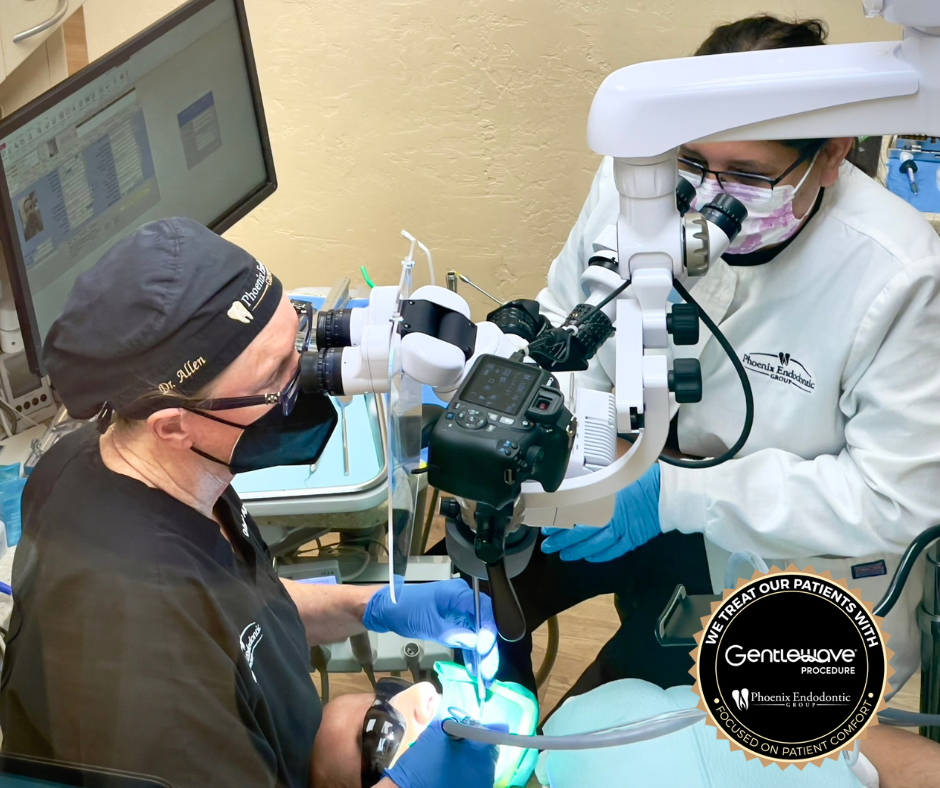Pain sends many patients to the dentist. This is certainly the case when it comes to patients who need root canals. However, not feeling pain does not mean you don’t need a root canal.
Root canals are an endodontic technique to preserve natural teeth that have irreversible pulpitis, an infection of the nerve pulp of a tooth not able to be treated successfully. This condition can result from severe decay or an injury to the tooth. Often there is pain, but not always.
Here are a few important reasons to look beyond pain to discover whether your tooth needs a root canal treatment.

Looking Beyond Pain – Root Canal Treatment
-
Your endodontist is looking for infection as the cause of your troubles, not pain. Inflammation in the tooth’s nerve pulp is the cause the endodontist is looking for. Pain can accompany inflammation, but it is not a reliable guide to diagnosis.
-
Pain is only one symptom of needing a root canal. Other symptoms include teeth that are sensitive to heat or cold, swelling of the face or gums, or teeth that become gray or discolored.
-
Your infection may be draining, perhaps temporarily reducing pain, but also pouring foul toxins into your mouth. A pimple on the gum, called a fistula, or other types of pus drainage from the tooth are also symptoms of pulpitis. These conditions may temporarily reduce your pain, but the tooth will still need treatment: a root canal.
-
Pain associated with inflamed nerve pulp can be inconsistent. If your dentist puts you on an antibiotic to deal with an infected tooth, your pain may be relieved. Your pain may go away on its own, but this might be because the nerves in your tooth have died – not because the tooth is healthy again. Some patients who require root canals report “positional pain,” pain that emerges only when they sit up, lay down, or run in place.
“Determining whether a patient needs a root canal can be complex, and pain is only one factor considered in an evaluation,” says Dr. Jacqueline S. Allen, who practices with the Phoenix Endodontic Group. “Regular checkups with your general dentist and referrals to endodontic specialists as needed are the most reliable way to know if your natural teeth need a root canal to save them.”
